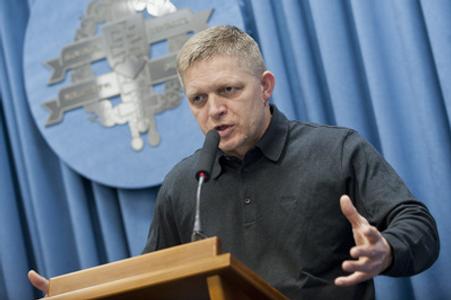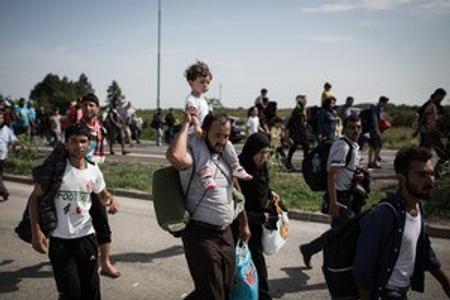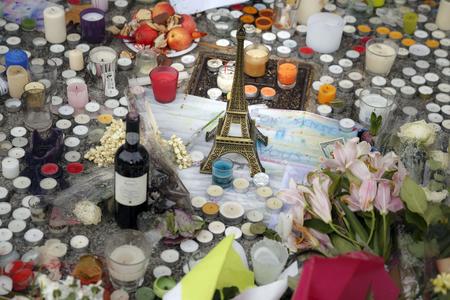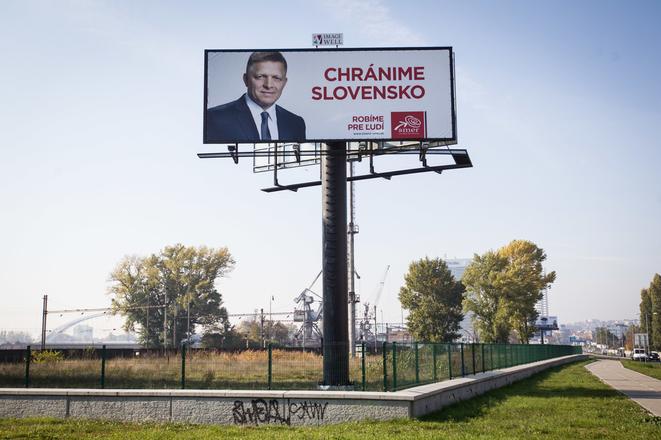Prime Minister Robert Fico has been hinting at links between the influx of refugees and the terrorist attacks ever since his first reaction to the Paris events, on November 14.
“It’s a confirmation of huge security threats connected to migration,” Fico said following the session of the government’s Security Council on that day, as he announced that two of the eight assailants were among the refugees who made it to Europe via the Balkan route, information that was later proven incorrect. “Slovak citizens and their security is of higher priority than migrants’ rights,” Fico said. Later, in a debate show of the TA3 news channel, Fico claimed that the government is monitoring “every single Muslim in Slovakia”.

Muslims shocked
That came as a shock to the Islamic Foundation in Slovakia.
“Not every radical or every extremist, but every Muslim,” the foundation’s website states, complaining that Fico “hinted that a part of the citizenry of his state represents a threat – not after a court verdict, nor after a police charge, but based on their faith”. Muslims may later not just be monitored, but also forced to wear green crescents, inspired by the yellow stars Jews were forced to wear in “the dark period of Slovak history”, the Islamic Foundation remarked.
PM Fico responded to the grievances of the Islamic Foundation, saying that the state is obliged to monitor whether members of the Muslim community who are legally residing in Slovakia or, alternatively, are newly arrived migrants, happen to have links to groups involved in terrorism.
Kiska: Fear is what terrorists want
Fico’s rhetoric, which can be likened to that of Hungarian PM Viktor Orbán, Czech President Miloš Zeman, or far-right leaders around Europe, earned harsh criticism also from local as well as international commentators. Fico is making the link between migration and terrorism in the situation when most European leaders stressed the opposite in order not to turn the public’s sentiments against migrants.
“We should not mix the different categories of people coming to Europe,” European Commission President Jean Claude Juncker said following the G20 summit on November 16, added that he invites “those in Europe who are trying to change the migration agenda we have adopted [...] to be serious about this and not to give in to these basic reactions”.
“Applying collective guilt, labelling all people of another faith, is not the way to increase the security of any country,” President Andrej Kiska said following him November 18 meeting with his Romanian counterpart Klaus Werner Iohannis. “Encouraging fear and hate among people is exactly what terrorists want to achieve.”
No to collective guilt
Apart from the president, also media and civic groups refused Fico’s associations between Muslims, refugees, and terrorism.
Dozens of intellectuals, including, for instance, political analyst Grigorij Meseznikov, sociologist Zora Bútorová, publicist Fedor Gál, and psychiatrist Jozef Hašto, signed the document “Terrorism won’t scare us”, which they published on November 17, when Slovaks remembered the Velvet Revolution.
“Robert Fico applies the principle of collective guilt on the victims of terror, just like the Communist and Nazi regime applied it on terror victims,” the document reads and charges that by doing so, Fico puts himself “beyond the most radical margin of European extremism”.
The organisers of the Plea for Humanity civic initiative, which became active in helping refugees as the crisis unfolded around Slovakia’s borders, called on the prime minister to take concrete actions “rather than irresponsible statements”.
“Such statements have no place in Europe in 2015,” head of the Open Society Foundation Ján Orlovský said on behalf of the Plea for Humanity organisers. He called on the prime minister to “change his rhetoric and calm emotions rather than scare the citizens of this country”. Slovakia should be part of the solution that will allow effective registration of migrants and their classification to refugees and persons without entitlement for international protection.
Negative sentiments
In Slovakia, anti-migrant sentiments have already been very strong since the migration crisis reached these geographical latitudes this summer. In an opinion poll by the Focus polling agency from early September, more than 70 percent of respondents refused or rather refused the refugee quotas plan, which the government of Robert Fico has been opposing.

Analysts now admit the negative sentiments towards migrants might further escalate, not as much due to the Paris attacks as such, but mostly due to the way the politicians present it in their campaign.
“If the political elite continues this way, linking the migration crisis with the attacks, anti-migrant sentiments might worsen,” Gallová Kriglerová said. “Because people do not understand this very well and if they have it explained the way the prime minister did in the aftermath of the attacks, worsening is very likely.”
Observers of the local political scene are very clear about the reasons why Fico’s statements oppose those of most leaders in the EU and beyond.
Pre-election rhetoric
"It definitely is pre-election rhetoric,” analyst with the Centre for the Research of Ethnicity and Culture (CVEK) Elena Gallová Kriglerová said in an interview with The Slovak Spectator.
Smer is using very simplified, slogan-like rhetoric to talk about this issue, she noted; on the one hand the interior minister threatens with the numbers of Muslims who could come to Slovakia, and the prime minister immediately reacts and says that the government will protect this country.
While in most European countries the concern is that far-right parties might strengthen their position on their respective political scenes, local observers do not stress this aspect that much in Slovakia. Rather, they expect the ruling Smer to score political points thanks to the fear-mongering rhetoric that they have applied ever since the start of the migration crisis.
“This topic can be significantly capitalised by the ruling party, because it is perceived as the most competent in solving [the problem],” Martin Slosiarik, sociologist and director of the Focus polling agency, told The Slovak Spectator.
Campaign to be taxed
Following Fico’s reaction to Paris analysts admit the campaign will evolve around the issue of migration and the protection of Slovakia, which Smer already made its key message on billboards saying “We protect Slovakia”.
Gallová Kriglerová, however, points to the dangers of abusing terrorism and migration for campaigning. Whatever the situation after the elections will be, the tension in the society and the negative stance towards refugees will only worsen the situation in Slovakia.
“The new government will have to face this, and accept some refugees, which I think they will after the elections, there will be a great refusal among the population,” she said. “That will be the tax to be paid for this campaign.”
Radka Minarechová contributed to this report




 We protect Slovakia. Smer's 2016 election campaign. (source: Sme)
We protect Slovakia. Smer's 2016 election campaign. (source: Sme)